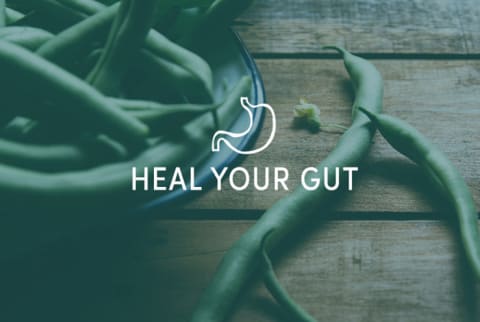Advertisement


Amy Shah, MD, an Ivy League-trained, double board certified physician, is one of the few doctors who masterfully integrates mainstream medicine with Eastern thought and a mind-body approach. This week, we're thrilled to share Dr. Shah's expertise in a new series on total gut health. To learn more, head to her new mindbodygreen course: The 7-Day Gut Reset: How To Get Your Digestion Back On Track In Just One Week.
The gut is currently an area of intense scientific research and discovery. But although we're learning a lot about the gut, we're not yet entirely sure of the best ways to regulate it. Still, there are a few foods and supplements that we know might help—and I'm sharing them with you here.
Note: You'll see that my recommendations are more diet-related than focused on supplements. That's because most experts agree that the gut responds better to real, whole foods than supplement pills.
1. Probiotics
You've probably heard of probiotics, and how they can help heal your gut. But did you know that the supplement industry is notoriously under-regulated? In fact, one study tested 14 commercial probiotics and found that only one contained the exact species stated on the label.
That's why I recommend focusing on naturally probiotic foods first—like fermented vegetables, sauerkraut, kimchi, miso, natto, bonito flakes, tempeh and kefir—before turning to pills.
Still, some supplements can be high-quality, and when used in conjunction with a good diet and lifestyle, probiotics can add to the bacterial diversity and seed more species. But overall, I recommend starting with food first, and then supplementing if necessary.
2. Prebiotics
Prebiotics are foods likely to encourage the growth of “good bacteria” already present in the gut. These foods might be even better for you than probiotics!
Foods especially rich in prebiotics include:
- leeks
- artichokes
- garlic
- asparagus
- legumes
3. Fiber
If there's one thing I've learned from my research, it’s that adding fiber is crucial to healing your gut.
It’s literally food for your gut bacteria! Most gut bacteria live in the distal colon—the last area in the intestines—so getting food there is key. But most food (protein, carbs, and fats) get digested before reaching the distal colon. Fiber doesn't—so the good bacteria can feed on it when it reaches the distal colon.
Why is it important to feed that specific bacteria? Because these bacteria create short chain fatty acids, which perform the vital function of calming the immune system and making it less reactive. These short chain fatty acids signal more T regulatory cells, which help to prevent autoimmunity and allergies.
If we don't get enough fiber, the bacteria starve and start eating mucin, which is the lining between our intestinal cells and bacteria.
It's estimated that hunter-gatherer societies consumed upwards of 200 grams of fiber, while the average modern American now gets just 15 grams a day.
The best source is complex carbohydrates from fermentable plant fibers. So you should eat more cellulose fibers, present in the tough parts of veggies and fruit, like broccoli stalks, the bottom of asparagus, kale stems, and orange pulp.
Make it a goal to eat three to five servings of vegetables a day. This will make it easier to get the fiber your body and gut need.
Supplements You Might Want To Consider
While more research needs to be done in this area, there are some supplements that hold promise in gut health. These include:
- Coconut (especially oil)
- Digestive enzymes
- L glutamine
- Aloe vera
- Apple cider vinegar
- Turmeric
- CO Q10
- Magnesium
I recommend discussing supplements with your doctor first, and these should only be used in conjunction with consuming lots of probiotics, prebiotics and fiber.

Dr. Amy Shah is a double board certified MD with training from Cornell, Columbia and Harvard Universities. She was named one of mindbodygreen's Top 100 Women In Wellness to Watch in 2015 and has been a guest on many national and local media shows. She helps busy people transform their health by reducing inflammation and eating more plants, utalizing the power of the microbiome to help digestion, natural hormone balance and food sensitivities. She is an expert on intermittent fasting for women and has a 2 week guided group program.
More from the author:
Functional Nutrition Training
Check out Functional Nutrition Coaching
A cutting-edge nutrition deep dive taught by 20+ top health & wellness experts
Learn moreMore from the author:
Functional Nutrition Training
Check out Functional Nutrition Coaching
A cutting-edge nutrition deep dive taught by 20+ top health & wellness experts
Learn more
Dr. Amy Shah is a double board certified MD with training from Cornell, Columbia and Harvard Universities. She was named one of mindbodygreen's Top 100 Women In Wellness to Watch in 2015 and has been a guest on many national and local media shows. She helps busy people transform their health by reducing inflammation and eating more plants, utalizing the power of the microbiome to help digestion, natural hormone balance and food sensitivities. She is an expert on intermittent fasting for women and has a 2 week guided group program.